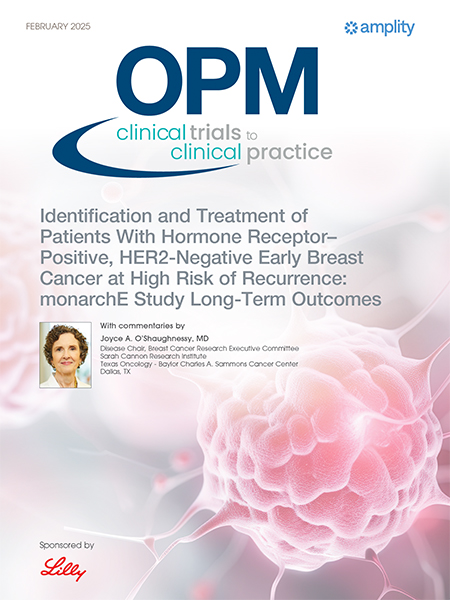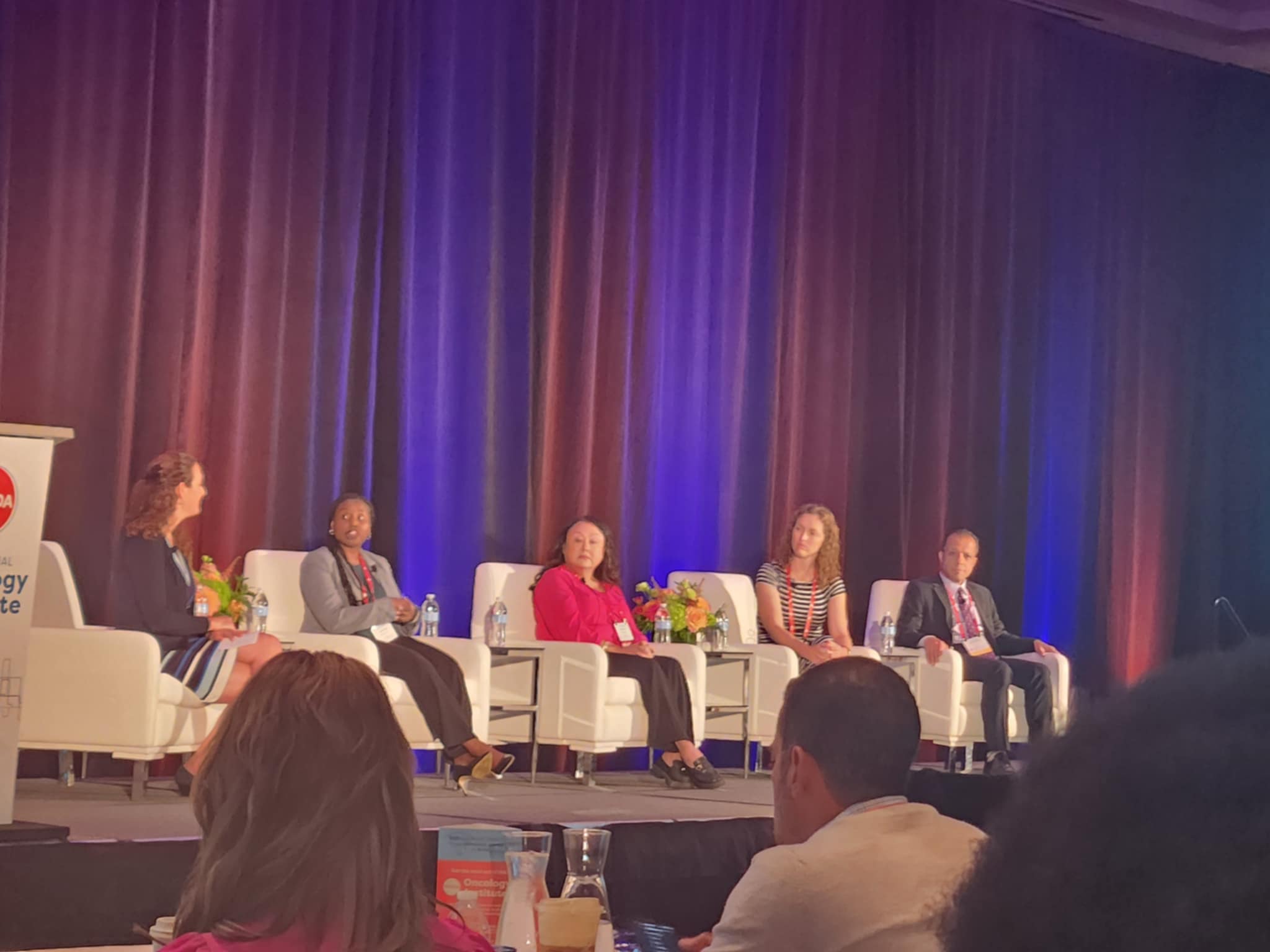Clinical Trials
In their expert commentaries, Jackie Broadway-Duren, PhD, DNP, APRN, FNP-BC, FAANP, and Mollie Moran, APRN-CNP, examine the noncovalent Bruton’s tyrosine kinase (BTK) inhibitor, pirtobrutinib, in the treatment of chronic lymphocytic leukemia (CLL) and small lymphocytic lymphoma (SLL). Read More ›
Minority populations remain underrepresented in cancer clinical trials, undermining understanding of therapeutic efficacy, safety, and biomarker relevance in these groups, while also significantly limiting the broader applicability of clinical trial findings. Read More ›
The participation rate in oncology clinical trials among veterans receiving care within the Department of Veterans Affairs is low, at 2%. Read More ›
We are pleased to announce the release of our next issue of Clinical Trials to Clinical Practice. This article provides expert commentary from Virginia F. Borges, MD, MMSc, on the use of abemaciclib as a combination or monotherapy in the treatment of patients with hormone receptor (HR)-positive, HER2-negative metastatic breast cancer. Read More ›
We are pleased to announce the release of our next issue of Clinical Trials to Clinical Practice. This article provides expert commentary from Joyce A. O’Shaughnessy, MD, on the use of endocrine therapy with or without adjuvant abemaciclib for patients with high-risk, hormone receptor (HR)-positive, HER2-negative early breast cancer. Read More ›
In their expert commentaries, Katherine Tobon, PharmD, BCOP, and Jiajoyce Richardson, DNP, CRNP, examine the role of Bruton tyrosine kinase (BTK) inhibitors, with a particular emphasis on pirtobrutinib, in treating chronic lymphocytic leukemia (CLL) and small lymphocytic lymphoma (SLL). They provide a thorough review of the BRUIN study, concentrating on the safety profile and therapeutic efficacy of pirtobrutinib in patients with CLL or SLL who have previously received at least 1 BTK inhibitor. Read More ›
This feature examines some of the cutting-edge trials that have been launched throughout 2024 and that are actively recruiting in breast cancer. Read More ›
By Colleen Hall
While the panel acknowledged there is a long way to go in terms of encouraging diverse patient populations to participate in clinical trials, they note that there is reason for hope. Before the draft guidance was even issued by the FDA in June, several industry sponsors had already partnered with health care professionals to boost clinical trial participation. Read More ›
In recognition of Prostate and Ovarian Cancer Awareness months, we have
compiled a list of clinical trials in these areas to discuss with your patients. Read More ›
Oncology Practice Management (OPM) is dedicated to providing comprehensive information aimed at eliminating health disparities and improving access to therapies for people from all populations, including racial and ethnic minorities; people with limited access to healthcare due to lack of financial resources; and people living in rural communities. Read More ›






